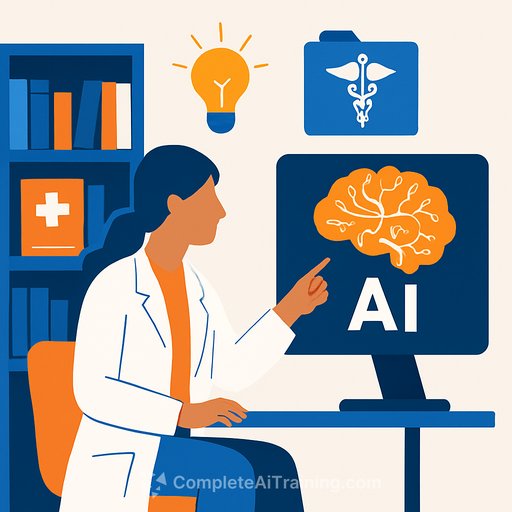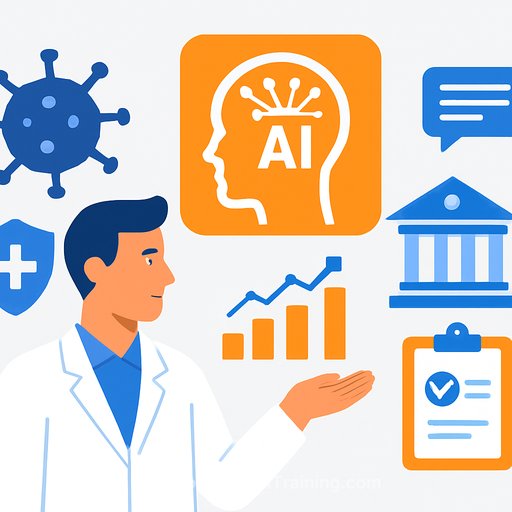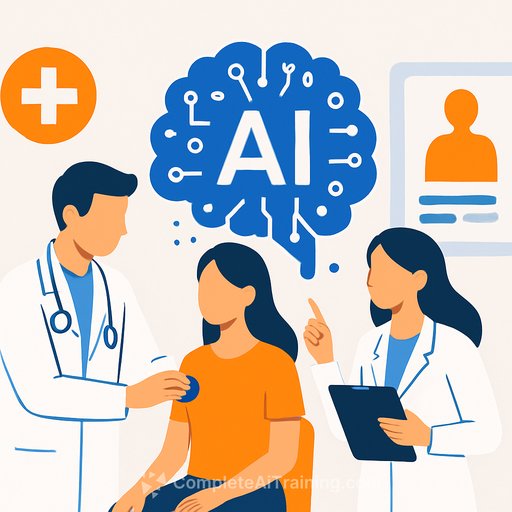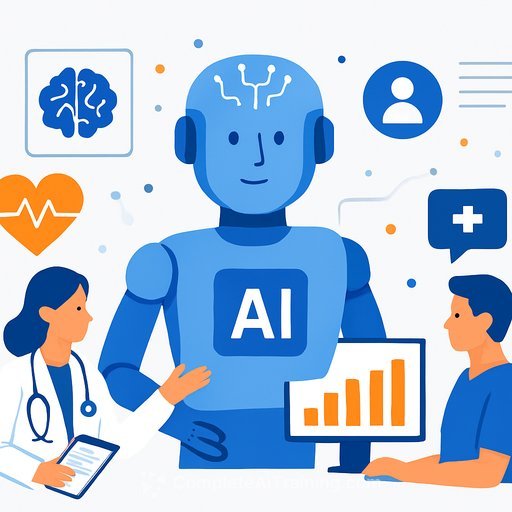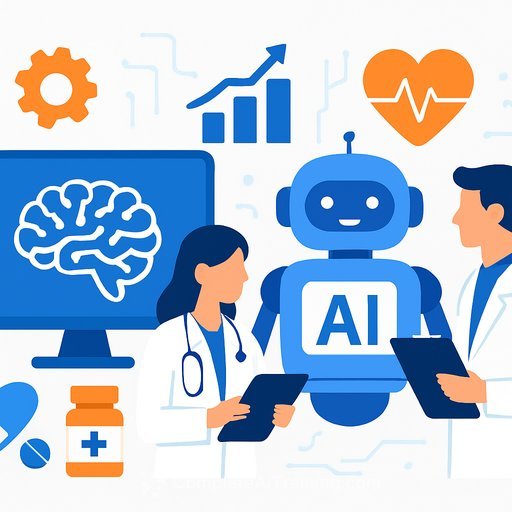How Medical Libraries Can Keep Pace with Artificial Intelligence in Healthcare
Artificial intelligence (AI) is reshaping healthcare by streamlining research workflows, improving information retrieval accuracy, and turning complex data into actionable insights for decision-making.
Executive Summary
AI applications in healthcare are gaining attention and growing rapidly. This surge creates a pressing need for clinicians and researchers to access the latest, most reliable, and clinically relevant information on AI in healthcare (AIH). However, the vast amount of databases and publications can overwhelm users, who must have advanced skills to filter and assess quality information.
The NEJM Collection, especially NEJM AI, helps by curating high-value content. It filters out noise to provide up-to-date, clinically relevant, and transformative information on AIH topics.
NEJM AI: Transforming Healthcare Research
AI in healthcare is a field full of potential and challenges. Many studies showcase promising AI-enabled technologies but often involve small sample sizes or lack consistent measurement of patient outcomes. It remains unclear how much benefit comes from AI models alone.
Clinicians frequently find it difficult to interpret AI study results and decide if a tool is safe and effective for practice. This difficulty arises from the sheer volume of publications and the time needed for critical appraisal.
Medical Librarians Can Bridge the Gap
Medical librarians play a crucial role in addressing these challenges. They support users in finding reliable AIH research and help interpret complex study results. While AIH information exists across many databases, users must apply the right search filters and evaluation criteria to access valuable content.
The NEJM Complete Collection, including NEJM AI, stands out by offering curated, clinically relevant AIH information. Librarians can assist clinicians not only in searching but also in developing algorithmic literacy and critical appraisal skills—essential in today's healthcare environment.
The NEJM Complete Collection is a suite of peer-reviewed, high-impact content tailored for researchers, learners, and educators. It deliberately separates important findings from less relevant material and includes physician-editor commentary to provide context and support clinical decisions.
How to Optimize the Use of the NEJM Collection
For most users, NEJM Journal Watch is a practical starting point. It summarizes information from over 150 medical journals, highlighting key clinical findings and expert commentary. This helps clinicians and researchers stay current without being overwhelmed.
Users can then explore topics more deeply by accessing primary articles within the collection.
Complementary Publications within the NEJM Collection
The journals within the NEJM Complete Collection complement each other, each with a clear mission to improve research and clinical practice rather than just increasing publication volume. For example:
- New England Journal of Medicine: Publishes practice-changing, peer-reviewed research recognized globally.
- NEJM AI: The first journal dedicated entirely to AI in healthcare; it focuses on clinical-grade evidence, ethical concerns, and building trust in AI tools.
- NEJM Catalyst: Connects healthcare leaders and clinicians to share practical innovations improving healthcare delivery.
- NEJM Evidence: Highlights exemplary clinical trials and offers insights into improving research design, including publishing null results to enhance trial methodology.
- NEJM Journal Watch: Curates and summarizes important research and guidelines with expert commentary to aid evidence appraisal.
Benefits to Medical Libraries
The NEJM Collection offers content valuable to machine scientists, researchers, and physicians alike, including:
- Original research: Clinical and preclinical trials of AI or AI-assisted technologies for diagnosis and treatment.
- Datasets, benchmarks, and protocols: New datasets and reproducible study designs useful for the medical machine learning community.
- Case studies: First-hand accounts of AI deployment challenges and lessons learned.
- Reviews: Peer-reviewed articles on new machine learning methods and emerging applications.
- Perspectives: Accessible discussions on current AIH topics.
- Policy Corner: In-depth commentaries addressing policy issues from multiple stakeholder perspectives.
- Editorials: Contextual commentary accompanying original research.
NEJM AI also extensively covers responsible AI principles like bias, transparency, privacy, accountability, human-centric design, safety, and societal impact. These topics are essential for the ethical integration of AI in healthcare.
Adding NEJM AI and the full NEJM Complete Collection to your library can increase usage, add value to your department, and give users a competitive advantage in AI-related research and clinical decision-making.
Key Takeaways
AI in healthcare is advancing quickly, and medical libraries must provide access to the latest and most reliable information. The NEJM Complete Collection, with its focused AI publication, offers curated, high-quality content that informs and supports ethical and effective AI use in clinical settings.
Medical libraries that leverage this collection position themselves as trusted sources for clinicians and researchers navigating AI in healthcare.
Your membership also unlocks:

